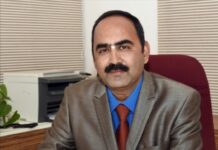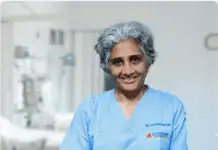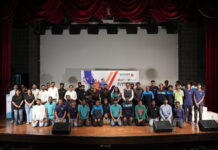Since its inception, the number of students participating in COIL has increased tremendously to over 300 in the year 2021-22
India, 20th May 2022: Symbiosis Centre for Management Studies (SCMS), Pune, a pioneer in the education sector, is among the very few in India to offer Collaborative Online International Learning, popularly known as COIL. COIL is a unique pedagogy that helps to connect faculty and students across the globe through academics. Also known as a virtual exchange, SCMS Pune started the initiative in 2019 with 93 students. Over the period of 3 years, the number of students participating in COIL has increased tremendously to over 300 in the year 2021-22. So far, SCMS Pune has completed six successful collaborations with its partner universities.
Important Announcement – EasyShiksha has now started Online Internship Program “Ab India Sikhega Ghar Se”
The year 2021-22 was special for COIL as SCMS Pune took forward the collaboration with a focus on developing South-South relations, thus collaborating with a University in Brazil. The faculty and students from Symbiosis Centre for Management Studies, Pune collaborated with Centro Paula Souza FATEC, Brazil for numerous courses ranging from Organizational Behavior, Business Accounting, Fundamentals of Marketing, Management Accounting and Human Resource Management.
The teams in India were led by Dr Adya Sharma (Director and Professor, SCMS) and a team of faculty comprising Dr Ashutosh Mathur, Dr Punit Mishra, Dr Shreya Virani, Prof Sonica Rautela and Prof Nehajoan Panackal, the team had a blend of faculty with different domain expertise. The team in Brazil comprised of Dr Osvaldo Junior Succi (Virtual Exchange Coordinator and Professor) with a team of faculty and support staff comprising of Prof Ana Carolina, Prof Neusa Haruka, Prof Ricardo Pompeu, Prof Angela Oliveira, Prof Danilo Sorroce, Prof Luciana Panaro , Prof Daniel Faria Chaim, Prof Antonio César Dall Evedove, Prof Maurício Roberto Ortiz de Camargo, Prof Luciana Maia, Prof. Ricardo Trovao, Prof Vania Regina Alves De Souza, Prof Patrícia Januária, Prof Luciani Alvareli, Prof Patricia Patricio. The faculty from both universities collaborated in identifying and designing coursework that promoted intercultural exposure and subject-specific learning.
visit easyshiksha for skill development
Keeping in line with the New Education Policy (NEP), COIL is a concrete step towards internationalization and has become an integral part of the curriculum at SCMS Pune. COIL enables faculty and students to connect across the globe through the comfort of their own country by leveraging the use of technology. Thus, mobility of individuals is not required to inculcate the elements of Internationalization.
Dr. Adya Sharma, Director of SCMS Pune, said, “NEP’20 lays a strong emphasis on the Internationalization of education in India. COIL is a good opportunity for Internationalization to help make our students Global Citizens. In addition, since physical Internationalization has a lot of costs involved, COIL is a much more viable option for Universities to provide the requisite exposure to their students.” The same was resonated by Dr Maurício Roberto Ortiz de Camargo, who further believes that the COIL experience can be valuable both in the professional aspects and in the formation of a humanistic vision to work in the corporate environments.
READ: delta electronics india
The initiative was appreciated by students as it helped them develop intercultural competencies, digital skills, strong bonds and networks while working together on subject-specific learning tasks. The students at SCMS Pune were able to understand and appreciate cultural differences while studying together.
Besides curriculum, students also enjoyed celebrating Diwali, Holi, and the Carnival with partner institutes students. The students of both Universities took pride in celebrating these festivals virtually together. The work submitted for COIL was an integral part of the internal evaluations of students. The efforts were truly appreciated by students and they have shown a keen desire to participate in such initiatives in the future.































































